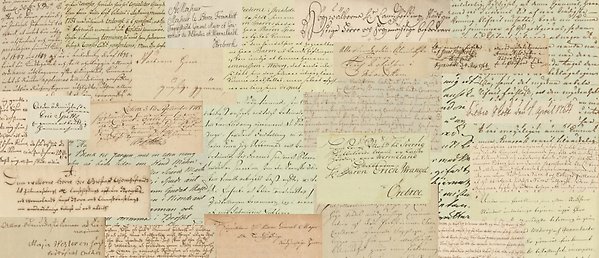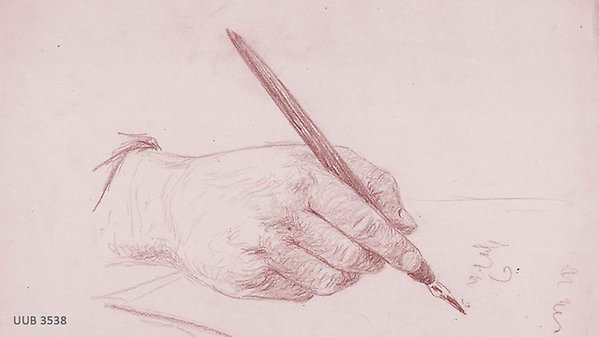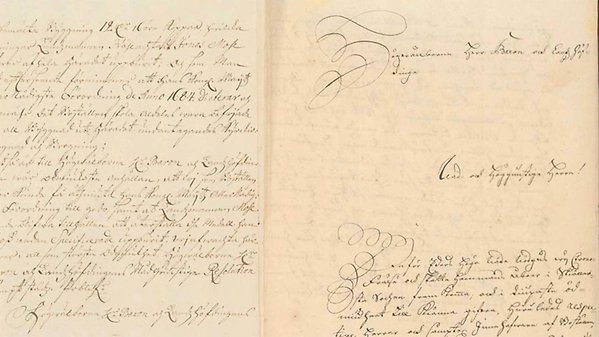Speaking to one's superiors
Petitions as cultural heritage and sources of knowledge

An interdisciplinary research project funded by the Swedish Research Council and coordinated by the Gender and Work project
The purpose of this project is to enhance accessibility to and knowledge of a historical source – petitions – used relatively little in Sweden, and to use this source to answer questions about people’s ways of supporting themselves and claiming rights in the past.
Petitions have their name from the Latin verb peto: go to, beseech, entreat. The right to petition is vital to our understanding of pre-modern political life. While not democratic in the modern sense of the word, communities and societies that acknowledged people’s right to present petitions cannot be described as despotic or absolutist either. Petitions allowed the powerless to speak to the powerful, including both women and men. Sometimes, petitions even gave impulse to new legislation [van Nierop 1997; Würgler 2001; Kotkas 2014]. Petitions gave ordinary people a voice and some scope to manoeuver [Schmidt Blaine 2001]. Petitions illuminate values and norms of the time, such as fairness, generosity, humanity and mercy [Houston 2014] as well as ideals of hard work, reliability and uprightness [Ågren 2017]. Petitions could also focus on religious grievances, and the right to support oneself could be claimed by means of petitioning. In spite of these obvious benefits, however, petitions have been relatively little used in Swedish historiography. Swedish petitions were handwritten and have been preserved in many different archives, which creates a need for overview of the material as a whole.
The project is managed by representatives of departments at Uppsala University and Riksarkivet (Swedish National Archives). The involved departments are the History department, the department of Linguistics and Philology, and the department of Information technology. The archival unit is Landsarkivet Uppsala. Head of project is professor Maria Ågren, deputy head is professor Joakim Nivre, and Docent Linda Oja represents Riksarkivet.
The project s funded by Vetenskapsrådet (Swedish Research Council). The project uses standard archival metadata, the verb-oriented method, methods of computational stylometry, word-spotting and writer identification techniques.
The project creates research infrastructure, combines insights and skills from several scholarly and scientific fields, and is an example of collaboration between university and archives as well as an example of digital humanities.
A petition index
- 45,000 pages of handwritten eighteenth century petitions sent in to the Governor's Administration of Örebro county are now photographed and made publicly accessible.
- There is an index (in Swedish) to these petitions. You can download the index from the Swedish National Archives' webpage on petitions.
Petitions in the GaW database
- Örjan Kardell, researcher in GaW, has registered sustenance activities from petitions sent in to the Governor's Administration of Örebro county in the eighteenth century. There are now 134 activities and 13,592 words of source text from these petitions in the GaW database.
- That is not the only petition material in the GaW database, however. There are also petitions sent in to the Governor's Administration in Västmanland county and to Handelskollegium (College of Trade) in Stockholm.

Go directly to the sources
Visit the Swedish National Archives' webpage on petitions.
Search new GaW (Beta)
Search and analyze data in the beta version of GaW's new search and extraction tool

